The State Legislature has finished their work for the current session. This update, from the Office of State Relations, provides a brief summary of the major budget items and includes an update on several bills of interest to campus, UW expert visits to the Capitol and a look into our outreach efforts involving elected officials. The State Senate met for a final time in regular session a month ago, during which they passed a number of bills of interest to campus. Leaders in both houses have said they do not have plans to convene in regular session for the rest of the calendar year.
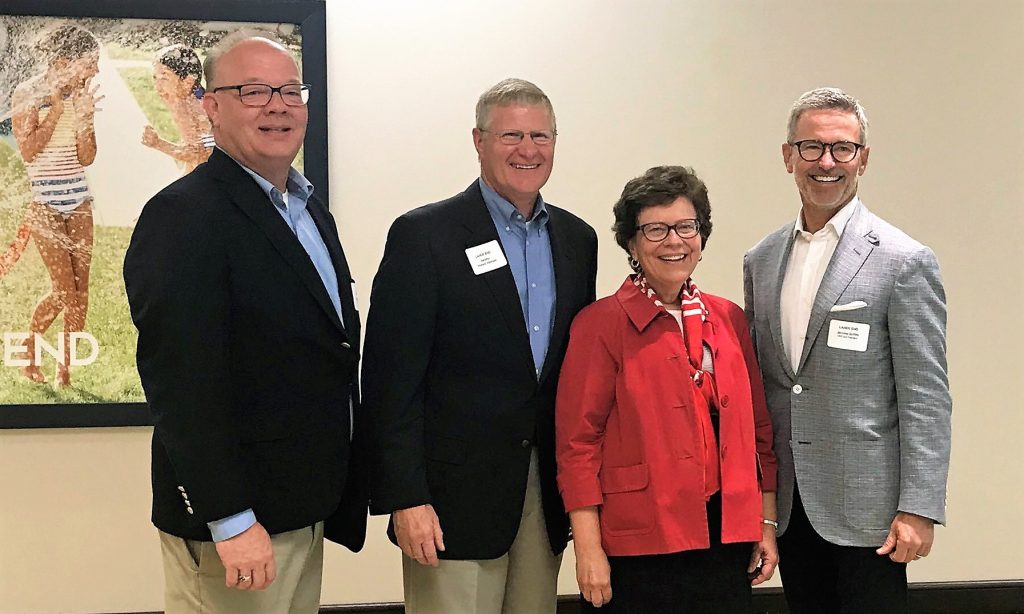
The State Budget
The State Legislature completed its work on the biennial state budget in September. The spending plan contained $36 million in new funding for UW System, among other provisions.
Other budget provisions included:
- Two 2-percent salary increases for employees — the first to take place on July 1, 2018, and the second on Jan. 1, 2019.
- Additional investment in dementia and Alzheimer’s research funding and the Wisconsin Rural Physician Residency Assistance Program.
- Creation of the Tommy G. Thompson Center for Leadership on campus.
- State investment in the Carbone Cancer Center Tumor Board.
- Reinstating maintenance dollars in the Capital Budget.
- Enumeration of Parking Lot 62 in the Capital Budget that would start the process toward the building expansion at the School of Veterinary Medicine, along with a utilities update for Lathrop Drive and Bascom Hill.
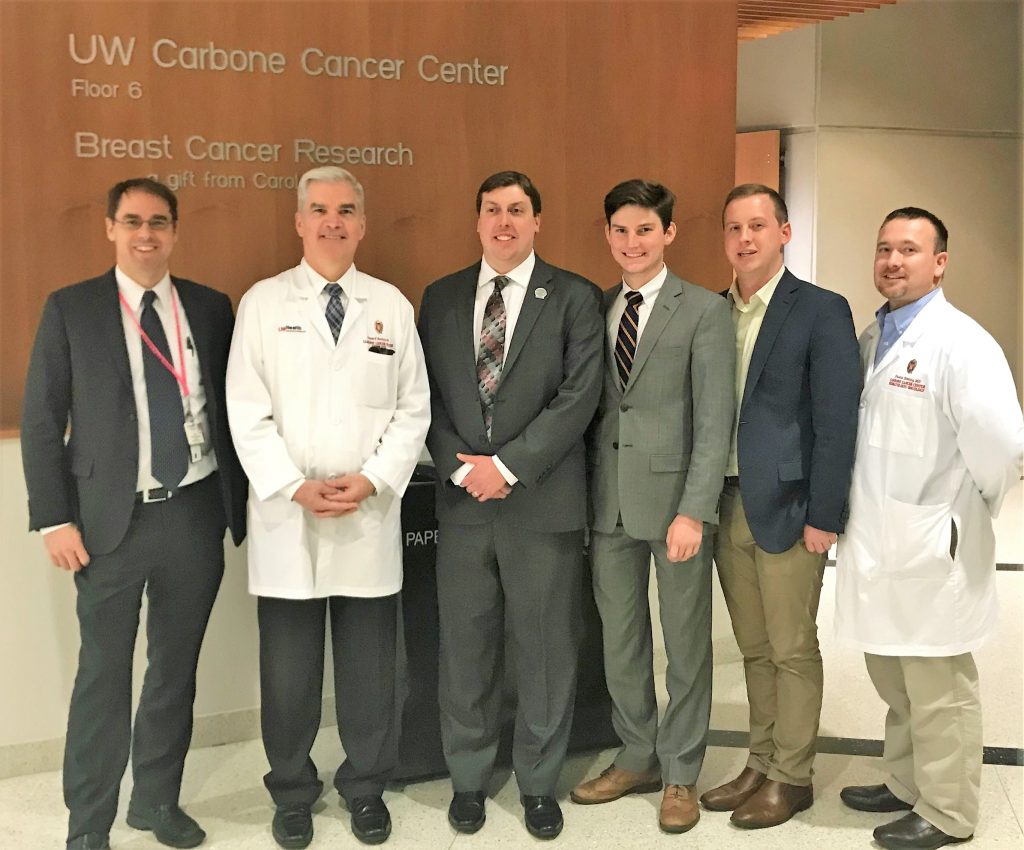
State Representative Mark Born (R-Beaver Dam) and legislative staff, middle, observed a meeting of the Carbone Cancer Center Precision Medicine Molecular Tumor Board and participated in a tour led by Director Dr. Howard Bailey.
Legislative Session
Building Projects & State Building Commission
Assembly Bill 675 amends State Building Commission laws. The bill, authored by Representative Mark Born (R-Beaver Dam) and Senator Terry Moulton (R-Chippewa Falls), updates and increases dollar thresholds for a state building project to require legislative and State Building Commission approval and simplify the building and contracts process. Governor Walker has signed this into law. It is now 2017 Wisconsin Act 237.
Team Physician Licensure Exemption
Assembly Bill 766 creates a licensure exemption for physicians traveling to Wisconsin if they are traveling with their sports team for an event in the state. The bill, authored by Senator Howard Marklein (R-Spring Green) and Representative Adam Neylon (R-Pewaukee), creates certainty for physicians who travel across state lines to treat their patients who would otherwise be required to get a medical license to practice in that particular state. Governor Walker has signed this into law. It is now 2017 Wisconsin Act 341.
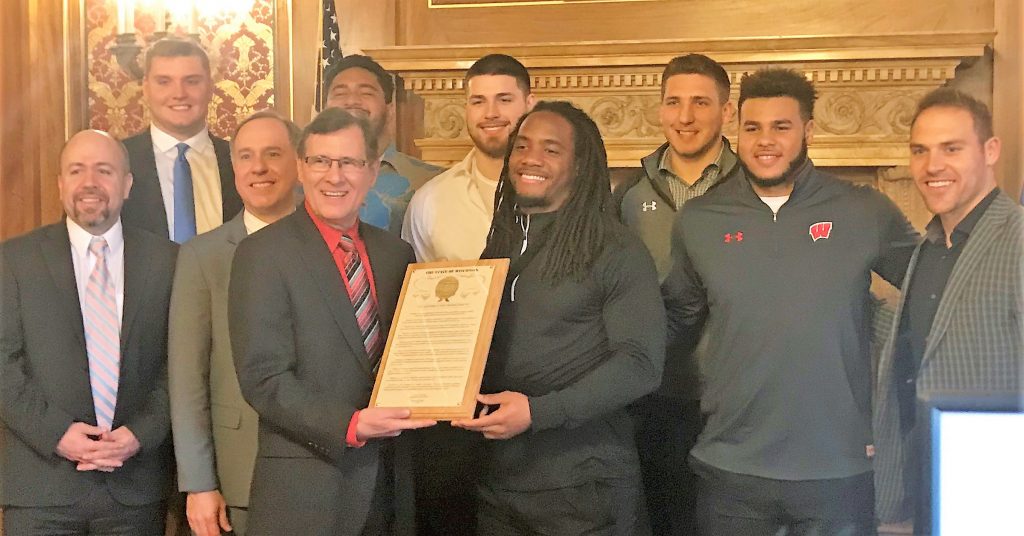
Heroin Opioid Prevention Education (HOPE)
Assembly Bill 907 was introduced by Representative John Nygren (R-Marinette) and Senator Alberta Darling (R-River Halls). The legislation does a number of things to combat opioid abuse and addiction. One provision provides increased funding for students to become mental health nurse practitioners, expands instructional capacity available to teach psychiatric mental health nursing, and provides fellowships for mental health nursing students to do clinical rotations in rural areas. Governor Walker signed this legislation into law. It is now 2017 Wisconsin Act 262.
Merit Scholarships
Assembly Bill 804 creates merit scholarships for certain University of Wisconsin System students who have graduated from a Wisconsin high school or have been granted a high school diploma from an in-state home-based private educational program. The scholarships would be $5,000/year and recipients would be awarded these scholarships based on a combination of cumulative grade-point average and test scores. An amendment was added later to the bill that would give authority to the Board of Commissioners of Public Lands to sell land and deposit the funds into a trust to be used for scholarships. Governor Walker has signed this into law. It is now 2017 Wisconsin Act 314.
UW Research Contracts
Assembly Bill 758 makes a number of changes to state statute pertaining to research contracts. The bill, authored by Representative Dave Murphy (R-Greenville) and Senator Dan Feyen (R-Fond du Lac) reduces administrative burden by eliminating the requirements for a 45-day review period and approval by Board of Regents when the university proposes to enter into a contract with a research company in which a university researcher has an interest. In situations that could implicate the statute, the bill requires that the university employee’s interest in the company be evaluated and addressed in a conflict of interest management plan. In addition, the bill defines “research company” as an entity engaged in research or development, so that the process is the same for both nonprofit and for-profit entities engaged in research or development. The State Assembly passed the bill, but it did not receive a final vote in the State Senate.
UW Experts in the Capitol
This legislative session, faculty, staff, and students attended legislative hearings to testify on various bills. These are some examples of UW experts in the Capitol:
-
- Nick Hillman (School of Education) presented his research on outcomes-based funding in higher education.
- Michael Moll (Assistant Director of Athletics), Dr. David Bernhardt (SMPH), Dr. Geoffrey Baer (SMPH) testified in favor of a bill that would allow traveling sports team physicians to practice on their own patients when in Wisconsin.
- Jon Eckhardt (Wisconsin School of Business) testified in favor of a bill that would exempt students from paying the filing fee to establish a limited liability corporation (LLC).
- Bill Murphy (College of Engineering) testified on biomanufacturing and the importance of incentivizing start-up companies.
- Dean Ian Robertson (College of Engineering) testified on the potential impact of FoxConn selecting Wisconsin as their next manufacturing site.
- John Bechtol & Joe Rasmussen (Veteran Services & Military Assistance Center) testified in favor of legislation that would create continuity in tuition for student veterans.
- David Noyce & Peter Rafferty (College of Engineering) both serve on the Governor’s Steering Committee on Autonomous & Connected Vehicle Testing & Deployment.
Elected Officials on Campus
During the legislative session, we welcomed a number of elected officials to campus for a variety of events and tours. We also hosted several members of the Governor’s Cabinet. State Relations also partnered with the Morgridge Institute for Research and the Wisconsin Alumni Research Foundation (WARF) to provide opportunities for legislators to connect with students from their legislative districts during STEM field trips hosted in the Discovery Building on campus.
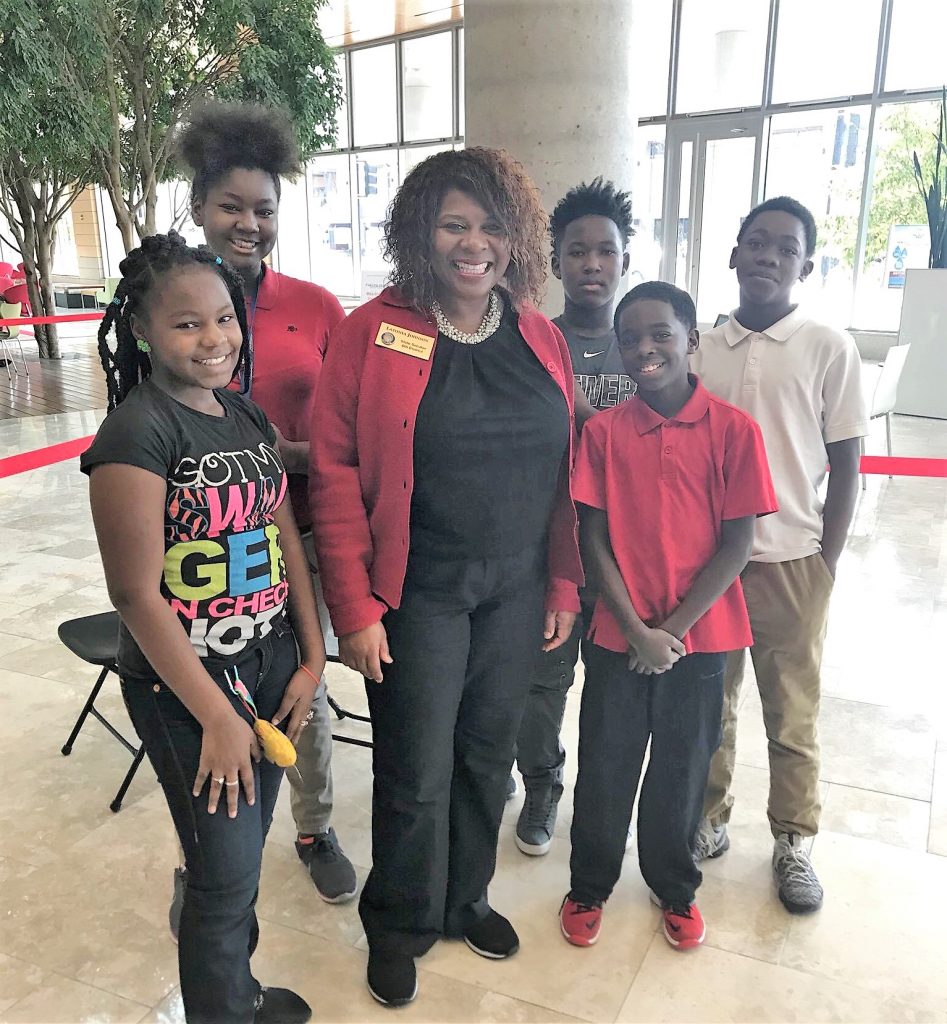
Other visits included:
-
- Secretary Ray Allen of the Department of Workforce Development (DWD). Secretary Allen visited with career services staff and the provost’s office on ways the university can partner with DWD to strengthen the Wisconsin workforce.
- Secretary Sheila Harsdorf of the Department of Agriculture, Trade, & Consumer Protection (DATCP) has visited campus multiple times, to tour the Center for Dairy Research and the School of Veterinary Medicine.
- Lieutenant Governor Rebecca Kleefisch was also a guest lecturer on the topic of homelessness last year.
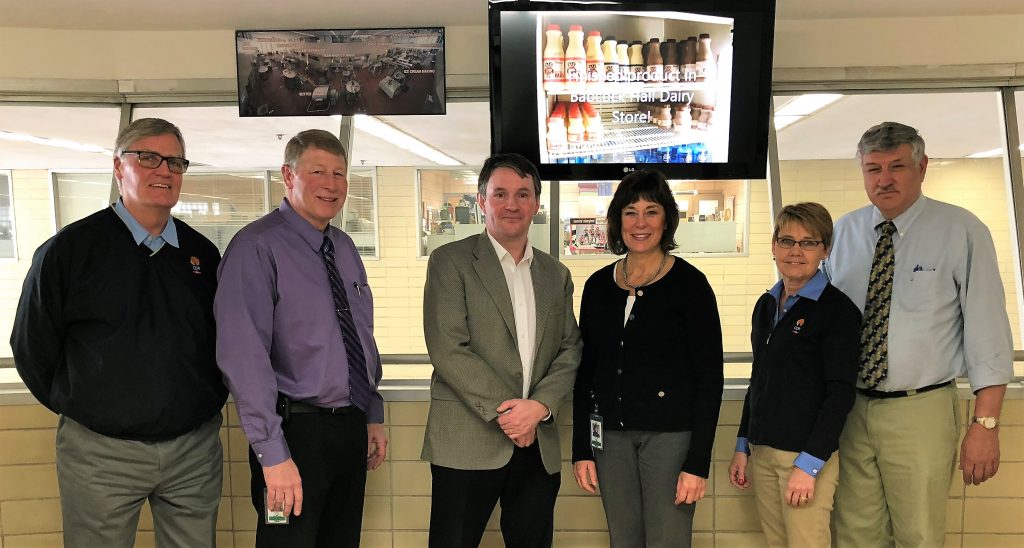
UW Day at the Capitol
Once a year, UW–Madison alumni from across the state participate in UW Day at the Capitol to talk with their elected officials about the importance of higher education in Wisconsin. Attendees hear from campus leadership, including the chancellor, about ways UW–Madison alumni can be effective advocates in the State Capitol.
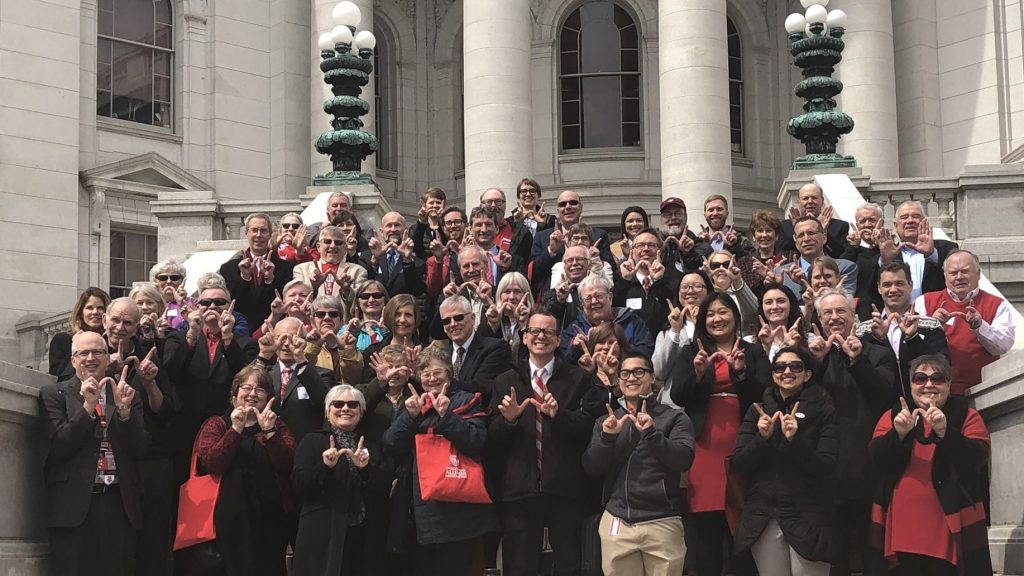
Please feel free to contact the Office of State Relations if you have questions or require assistance with contacting state elected officials.
Follow us on Twitter @StateRelations